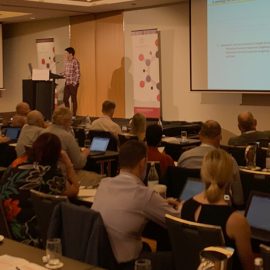About the ASM
While historically the ASM has been dedicated to influenza, a significant portion of the 2021 meeting was dedicated to COVID-19. Topics include the emergence and evolution of SARS-CoV-2, healthcare worker infections and immunity to COVID-19, and looked at responses around the world, including the Australian response. There were also updates on influenza and pneumococcal disease.
Download the 2021 Annual Scientific Meeting Program here.
Recordings and some PDFs for presentations from this event are available for viewing below.
Session 1
Initial emergence and spread of COVID
Presented by Prof Benjamin Cowling
Responses from around the world
Presented by Prof Mary-Louise McLaws
Australian response
Presented by Prof Allen Cheng
Question & answer session
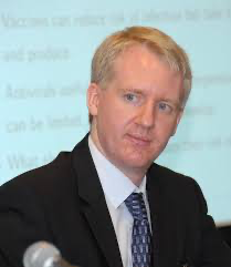 Professor Benjamin Cowling joined the School of Public Health (SPH) at the University of Hong Kong (HKU) in 2004. Prior to moving to Hong Kong, he graduated with a PhD in medical statistics at the University of Warwick (UK) in 2003, and spent a year as a postdoc at Imperial College London (UK).
Professor Benjamin Cowling joined the School of Public Health (SPH) at the University of Hong Kong (HKU) in 2004. Prior to moving to Hong Kong, he graduated with a PhD in medical statistics at the University of Warwick (UK) in 2003, and spent a year as a postdoc at Imperial College London (UK).
He has been the Head of the Division of Epidemiology and Biostatistics since 2013. He is responsible for teaching the introductory module in epidemiology on the MPH curriculum, and is the chairman of the Departmental Research Postgraduate Committee.
Prof. Cowling is co-director of the WHO Collaborating Centre for Infectious Disease Epidemiology and Control at the HKU SPH.
 Professor Mary-Louise McLaws is a member of the World Health Organization (WHO) Health Emergencies Program Experts Advisory Panel for Infection Prevention and Control Preparedness, Readiness and Response to COVID-19.
Professor Mary-Louise McLaws is a member of the World Health Organization (WHO) Health Emergencies Program Experts Advisory Panel for Infection Prevention and Control Preparedness, Readiness and Response to COVID-19.
For several years she was a short mission World Health Organization Advisor to China and Malaysia for surveillance development. She collaborated with Beijing to review the response to the Severe Acute Respiratory Syndrome (SARS) outbreak and healthcare worker safety for the Hong Kong SARS designated hospital.
Mary-Louise McLaws provided advice for 9 years to the WHO Clean Care is Safer Care Challenge program. She was commissioned by the Commonwealth to review the Pandemic Influenza Infection Control Guidelines for evidence of protection for healthcare workers.
 Professor Allen Cheng is an infectious diseases physician. He is Professor of Infectious Diseases Epidemiology and is Director of the Infection Prevention and Healthcare Epidemiology unit at Alfred Health.
Professor Allen Cheng is an infectious diseases physician. He is Professor of Infectious Diseases Epidemiology and is Director of the Infection Prevention and Healthcare Epidemiology unit at Alfred Health.
He has a PhD (Flinders University), a Master of Public Health (Monash University) and a Master of Biostatistics (University of Queensland). He has previously worked as an infectious diseases and general physician in Darwin and Geelong, and has worked in remote communities in the Top End of Australia, and in Papua New Guinea, Thailand, the United States and Finland.
In 2020, Prof. Cheng became the Victorian Deputy Chief Health Officer during the COVID-19 pandemic.
Session 2
COVID vaccine overview
Presented by A/Prof Paul Griffin
Treatment overview
Presented by A/Prof Steven Tong
Question and answer session
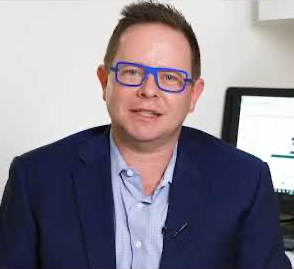 Associate Professor Paul Griffin is an infectious diseases physician and microbiologist. He was appointed as the Director of Infectious Diseases at Mater Health Services in 2013. He is the Principal Investigator at Q-Pharm, as Honorary Research Fellow at Mater Medical Research Institute and Queensland Institute of Medical Research. He is also a Senior Lecturer at the University of Queensland, where he is currently involved in the trials of the Novavax COVID-19 Vaccine with the Nucleus Network.
Associate Professor Paul Griffin is an infectious diseases physician and microbiologist. He was appointed as the Director of Infectious Diseases at Mater Health Services in 2013. He is the Principal Investigator at Q-Pharm, as Honorary Research Fellow at Mater Medical Research Institute and Queensland Institute of Medical Research. He is also a Senior Lecturer at the University of Queensland, where he is currently involved in the trials of the Novavax COVID-19 Vaccine with the Nucleus Network.
 Associate Professor Steven Tong is an infectious diseases physician with the Victorian Infectious Diseases Service and Co-Head of the Translational and Clinical Research and Indigenous Health crosscutting disciplines at the Doherty Institute. He spent 10 years in Darwin before moving to Melbourne to join the Doherty Institute in 2016. His research interests include skin pathogens (Staphylococcus aureus, Group A Streptococcus), hospital infections, Indigenous health, viral hepatitis and influenza. His passion is to apply cutting edge science to address clinically driven questions.
Associate Professor Steven Tong is an infectious diseases physician with the Victorian Infectious Diseases Service and Co-Head of the Translational and Clinical Research and Indigenous Health crosscutting disciplines at the Doherty Institute. He spent 10 years in Darwin before moving to Melbourne to join the Doherty Institute in 2016. His research interests include skin pathogens (Staphylococcus aureus, Group A Streptococcus), hospital infections, Indigenous health, viral hepatitis and influenza. His passion is to apply cutting edge science to address clinically driven questions.
Session 3
The role digital technology played in the COVID-19 pandemic
Presented by Prof Rhema Vaithianathan
Modelling to support decision making in uncertain times
Presented by Prof Jodie McVernon
Defining risk groups
Presented by Dr Kirsty Short
Question & answer session
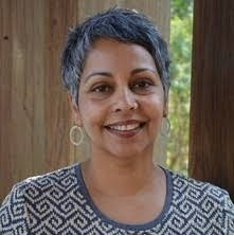 Rhema Vaithianathan is a Professor of Social Data Analytics at the Institute for Social Science Research at the University of Queensland (UQ) and a Professor of Economics at Auckland University of Technology New Zealand (AUT). She is the Director of the Centre for Social Data Analytics, a research centre with sites at AUT and UQ.
Rhema Vaithianathan is a Professor of Social Data Analytics at the Institute for Social Science Research at the University of Queensland (UQ) and a Professor of Economics at Auckland University of Technology New Zealand (AUT). She is the Director of the Centre for Social Data Analytics, a research centre with sites at AUT and UQ.
Rhema is recognised internationally for translational research that uses data analytics for social good. She has been working with health data and collaborating with hospitals and health policy agencies for over 25 years, including work on indigenous health and disparities.
Rhema has held numerous research positions in Australia, Singapore and the United States, including a Harkness Fellowship at Harvard University.
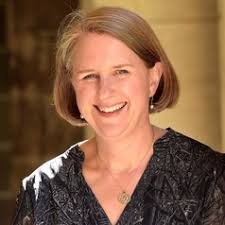 Professor Jodie McVernon is a public health physician and epidemiologist. She has extensive expertise in clinical vaccine trials, epidemiologic studies and mathematical modelling of infectious diseases, gained in Oxford, London and Melbourne. For the past 15 years she has been building capacity in infectious diseases modelling in Australia to inform immunization and pandemic preparedness policy. She has led nationally distributed networks of modellers informing responses to the 2009 H1N1 influenza pandemic and the current COVID-19 pandemic.
Professor Jodie McVernon is a public health physician and epidemiologist. She has extensive expertise in clinical vaccine trials, epidemiologic studies and mathematical modelling of infectious diseases, gained in Oxford, London and Melbourne. For the past 15 years she has been building capacity in infectious diseases modelling in Australia to inform immunization and pandemic preparedness policy. She has led nationally distributed networks of modellers informing responses to the 2009 H1N1 influenza pandemic and the current COVID-19 pandemic.
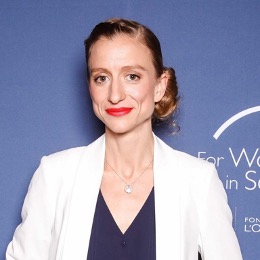 Dr Kirsty Short is an Australia Research Council DECRA research fellow in the School of Chemistry and Molecular Biosciences at the University of Queensland in Brisbane Australia.
Dr Kirsty Short is an Australia Research Council DECRA research fellow in the School of Chemistry and Molecular Biosciences at the University of Queensland in Brisbane Australia.
She completed a PhD in 2013 at the Department of Microbiology and Immunology at the University of Melbourne. In 2013 she was also awarded an NHMRC CJ Martin Early Career Fellowship to go to the Netherlands to work in the Department of Virosciences at Erasmus Medical Centre. She returned to Australia at the end of 2015 and in 2017 she established her independent research group at the University of Queensland.
She works on many different aspects of influenza virus pathogenesis, understanding how the flu virus affects different animal species, investigating the role of the immune system in severe flu infections and the interactions between the flu and chronic medical conditions such as diabetes and obesity.
Session 4
Aged care – the weakest link?
Presented by A/Prof Micael Murray
Immunity to COVID-19
Presented by Prof Katherine Kedzierska
COVID-19 in children – curiouser and curiouser
Presented by Prof David Burgner
Question & answer session
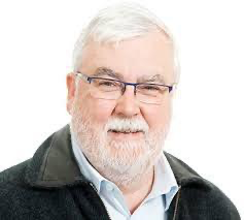 As the Divisional Medical Director of Continued Care, Head of Geriatric Medicine and Medical Lead of Patient Flow at Austin Health, Associate Professor Michael Murray AM brings extensive experience in the health, education and the aged care industry. With nearly 30 years involvement in geriatric care, Michael’s career highlights include extensive work in continence, public health and public policy, as well as working in education and service development.
As the Divisional Medical Director of Continued Care, Head of Geriatric Medicine and Medical Lead of Patient Flow at Austin Health, Associate Professor Michael Murray AM brings extensive experience in the health, education and the aged care industry. With nearly 30 years involvement in geriatric care, Michael’s career highlights include extensive work in continence, public health and public policy, as well as working in education and service development.
In 2019 Michael was appointed as the interim Chief Clinical Advisor to the first Aged Care Quality and Safety Commissioner. Michael holds several board and committee positions with a variety of health and educational institutions Michael has been the National Chairperson of the Continence Foundation of Australia for several years, prior to which he was the Victorian State President. Michael is the president of the National Ageing Research Institute.
Michael was recently appointed as the Geriatrician Lead to the Victorian Aged Care Response Centre (VACRC) for Covid-19.
 Professor Katherine Kedzierska is the Head of the Human T cell Laboratory in the Department of Microbiology and Immunology and an NHMRC Senior Research Fellow Level B. Her principal area of expertise is viral immunology.
Professor Katherine Kedzierska is the Head of the Human T cell Laboratory in the Department of Microbiology and Immunology and an NHMRC Senior Research Fellow Level B. Her principal area of expertise is viral immunology.
She received her PhD from Monash University in 2002. Her PhD, performed at the Burnet Institute with Professor Suzanne Crowe, studied immunity to HIV infection and the mechanisms of disease pathogenicity.
As an NHMRC Peter Doherty Fellow in the Department of Microbiology and Immunology with Laureate Professor Peter Doherty, Katherine undertook research into the key mechanisms underlying immunological T cell memory formation and persistence. Subsequently, as an NHMRC RD Wright Fellow, then an NHMRC CDF2 Fellow, Katherine has established her independent research on universal immunity to human influenza viruses.
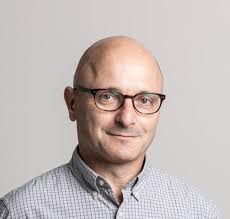 Professor David Burgner is a paediatric infectious diseases clinician scientist. He completed his PhD on susceptibility to severe malaria at Oxford University in the UK and subsequently trained at Great Ormond Street Hospital and St Mary’s Hospital/Imperial College, London.
Professor David Burgner is a paediatric infectious diseases clinician scientist. He completed his PhD on susceptibility to severe malaria at Oxford University in the UK and subsequently trained at Great Ormond Street Hospital and St Mary’s Hospital/Imperial College, London.
He was the first and only infectious diseases paediatrician in Western Australia from 2002 until 2010, when he relocated to Melbourne to join the Murdoch Childrens Research Institute. He is currently a National Health and Medical Research Council (NHMRC) Senior Research Fellow, an honorary (NHFA) Future Leader Fellow, a Professorial Fellow at Melbourne University, and a paediatric infectious diseases consultant at Monash Children’s Hospital.
Session 5
Challenges facing distribution of COVID vaccines
Presentation by Prof Paul Effler
Healthcare worker infections
Presented by A/Prof Lou Irving
Diagnostic tests
Presented by A/Prof Deborah Williamson
Questions & answer session
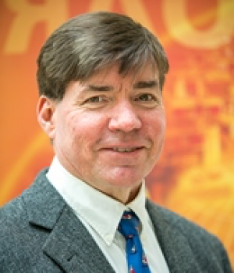 Professor Paul Effler is a public health physician and the Senior Medical Advisor for Immunisations in WA the Department of Health. He is a Clinical Professor at the UWA School Of Medicine, an Associate Editor for the journal of Emerging Infectious Diseases, and serves on the Steering Committee for the WHO Global Outbreak and Response Network in Geneva.
Professor Paul Effler is a public health physician and the Senior Medical Advisor for Immunisations in WA the Department of Health. He is a Clinical Professor at the UWA School Of Medicine, an Associate Editor for the journal of Emerging Infectious Diseases, and serves on the Steering Committee for the WHO Global Outbreak and Response Network in Geneva.
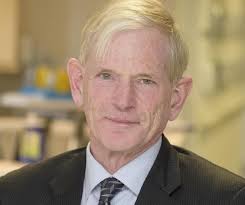 Associate Professor Lou Irving is a Respiratory Physician at the Peter MacCallum Cancer Centre, the Director of Respiratory and Sleep Medicine and Director of Clinical Training at the Royal Melbourne Hospital. Associate Professor Irving has clinical, teaching and research interests in lung cancer, advanced bronchoscopy and COPD and has published over 250 scientific papers.
Associate Professor Lou Irving is a Respiratory Physician at the Peter MacCallum Cancer Centre, the Director of Respiratory and Sleep Medicine and Director of Clinical Training at the Royal Melbourne Hospital. Associate Professor Irving has clinical, teaching and research interests in lung cancer, advanced bronchoscopy and COPD and has published over 250 scientific papers.
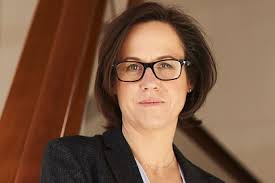 Associate Professor Deborah Williamson is a Clinical Microbiologist and Deputy Director of the Microbiological Diagnostic Unit Public Health Laboratory (MDU PHL). She is also a Laboratory Head in the Department of Microbiology and Immunology. Deborah is involved in the delivery of specialist public health laboratory services, and in the diagnosis and surveillance of communicable diseases.
Associate Professor Deborah Williamson is a Clinical Microbiologist and Deputy Director of the Microbiological Diagnostic Unit Public Health Laboratory (MDU PHL). She is also a Laboratory Head in the Department of Microbiology and Immunology. Deborah is involved in the delivery of specialist public health laboratory services, and in the diagnosis and surveillance of communicable diseases.
Her research interests include the molecular epidemiology and pathogenesis of infections caused by antimicrobial resistant pathogens, and the translation of genomic technologies to questions of public health importance.
Session 6
Differences in COVID & influenza
Presented by Prof Bill Rawlinson AM
Flu epidemiology
Presented by Prof Ian Barr
New vaccines – Cell based vs egg based
Presented by Prof Gary Grohmann
Pneumococcal disease – Changes to NIP, COVID-19
Presented by Prof Tony Korman
Question & answer session
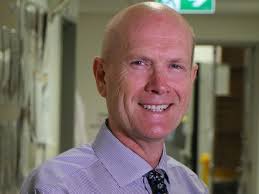 Professor Bill Rawlinson AM is a Senior Medical Virologist and the Director of Virology at South Eastern Sydney and Illawarra Health Service. He is Director of the Area virology reference laboratory, a virology clinical trials unit, the Therapeutic Goods Administration (TGA) licensed laboratory testing organs donors for blood borne viruses, and the virology research laboratory.
Professor Bill Rawlinson AM is a Senior Medical Virologist and the Director of Virology at South Eastern Sydney and Illawarra Health Service. He is Director of the Area virology reference laboratory, a virology clinical trials unit, the Therapeutic Goods Administration (TGA) licensed laboratory testing organs donors for blood borne viruses, and the virology research laboratory.
Prof Rawlinson completed his MBBS and BSc(Med) at the University of Sydney in 1983, then obtained his Fellowship of the Royal Australasian College of Physicians in Infectious Diseases, and subsequently specialised in virology, receiving his Fellowship of the Royal College of Pathologists Australasia in Microbiology. He obtained his PhD from the University of Cambridge, UK, in 1994, for his studies of the genomes of human and murine CMV. Prof Rawlinson is now a molecular virologist with particular scientific expertise in herpes viruses (CMV), hepatitis virus (HCV), enteroviruses, and respiratory viruses.
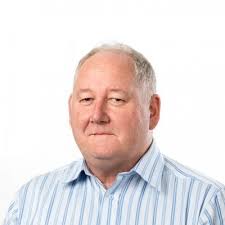 Profossor Ian Barr is Deputy Director of the World Health Organization (WHO) Collaborating Centre for Reference and Research on Influenza. Ian has had over 35 years’ experience in biological research and development in academic institutions and at CSL Limited on various topics such as vaccine development, mucosal immunology, adjuvants, cancer therapeutics, immune system development and diagnostics.
Profossor Ian Barr is Deputy Director of the World Health Organization (WHO) Collaborating Centre for Reference and Research on Influenza. Ian has had over 35 years’ experience in biological research and development in academic institutions and at CSL Limited on various topics such as vaccine development, mucosal immunology, adjuvants, cancer therapeutics, immune system development and diagnostics.
Ian joined the Centre in 2000 and has served as Deputy Director since 2005. He is an Honorary Senior Research Fellow at Federation University and holds an honorary position at the University of Melbourne.
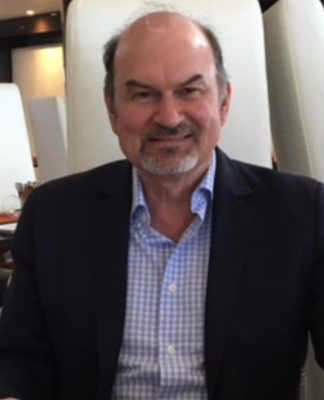 Professor Gary Grohmann is a virologist and a former Director of Immunobiology (a WHO Essential Regulatory Laboratory) at the Therapeutic Goods Administration (TGA) in Australia (1997- 2015), responsible for vaccine testing and registration. During this time he also represented the TGA on various WHO committees involving influenza issues. He then undertook a number of engagements with WHO (2015-2018) in Geneva with the Health Systems and Innovation Group (working with the Technology Transfer Initiative assisting developing vaccine manufacturers and the WHO Research blueprint), the Global Action Plan (GAP) for Influenza Vaccines, the Essential Medicines Programme (Reviewing Biocontainment); the Global Influenza Programme (Vaccine strain selection committee and the ‘Switch’ meetings); and the Pandemic Influenza Preparedness Framework Review Group Secretariat (lead).
Professor Gary Grohmann is a virologist and a former Director of Immunobiology (a WHO Essential Regulatory Laboratory) at the Therapeutic Goods Administration (TGA) in Australia (1997- 2015), responsible for vaccine testing and registration. During this time he also represented the TGA on various WHO committees involving influenza issues. He then undertook a number of engagements with WHO (2015-2018) in Geneva with the Health Systems and Innovation Group (working with the Technology Transfer Initiative assisting developing vaccine manufacturers and the WHO Research blueprint), the Global Action Plan (GAP) for Influenza Vaccines, the Essential Medicines Programme (Reviewing Biocontainment); the Global Influenza Programme (Vaccine strain selection committee and the ‘Switch’ meetings); and the Pandemic Influenza Preparedness Framework Review Group Secretariat (lead).
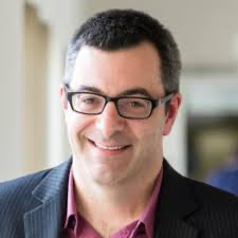 Prof Tony Korman is Director, Monash Infectious Diseases and Director of Microbiology at Monash Health, and Adjunct Clinical Professor, Centre for Inflammatory Diseases, Department of Medicine, School of Clinical Sciences, Monash University. He is a member of the Australian Technical Advisory Group on Immunisation (ATAGI).
Prof Tony Korman is Director, Monash Infectious Diseases and Director of Microbiology at Monash Health, and Adjunct Clinical Professor, Centre for Inflammatory Diseases, Department of Medicine, School of Clinical Sciences, Monash University. He is a member of the Australian Technical Advisory Group on Immunisation (ATAGI).
